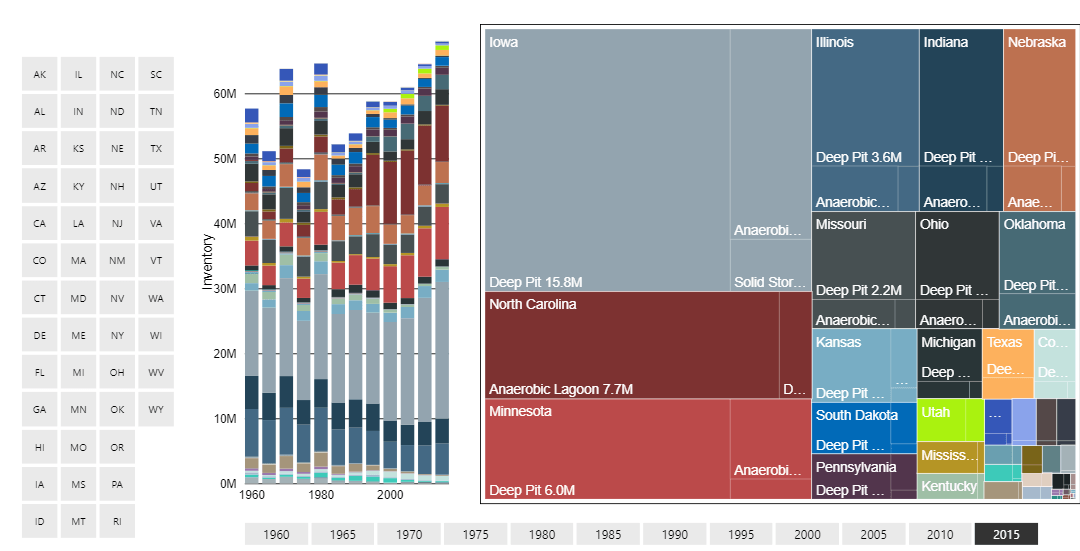The Resilient Food Initiative in partnership with the National Pork Board completed a study in 2018 to assess the carbon, energy, water and land footprints of US pork produced at five-year increments between 1960 and 2015. This assessment utilizes the Life Cycle Assessment (LCA) methodology, which is a technique to assess the potential environmental impacts associated with a product system by compiling an inventory of relevant energy and material flows, evaluating the associated burdens, and interpreting the results to assist in making more informed decisions and to provide an understanding of the drivers of change over the past 55 years. The assessment produced an enormous amount of data, so much so that all of the charts and figures could not be included in the final report.
The RFI and the NPB believe strongly in transparency in the pursuit of sustainability, so we worked to enable complete exploration of the results through the PowerBI visualization software. The end result is presented below. Results for each of the four impact categories are presented for every one of the twelve simulation years and for all of the 80+ simulated counties. Impacts are presented in a variety of ways including per kg LW, per pig, and for the entire US swine industry. Documentation for the research methodology behind these results can be found in the final report, available for download HERE.
Explore the underlying the data through curated visualizations HERE.
